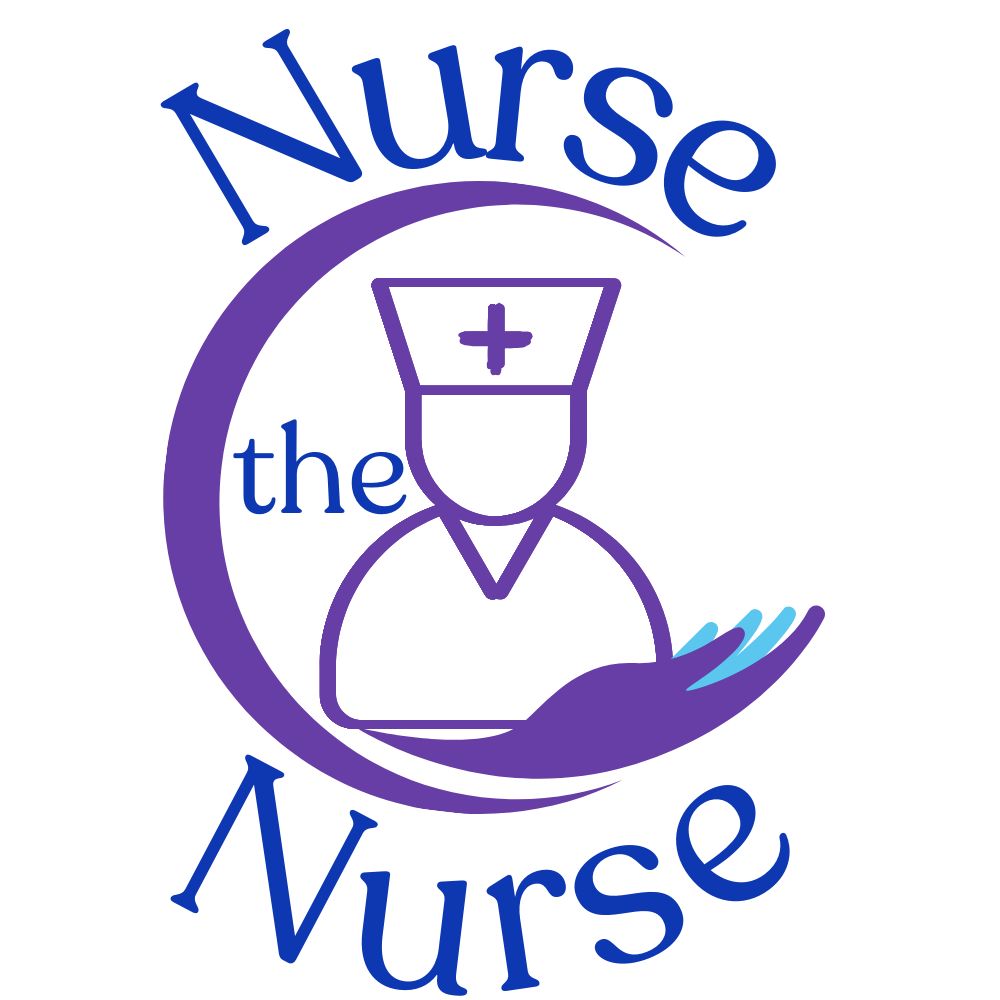Justice in Nursing: Promoting Equity and Advocacy
Nursing is a profession deeply rooted in the principles of care, compassion, and justice. The concept of justice in nursing transcends the mere provision of healthcare services; it embodies the ethical obligation to treat all patients with fairness and impartiality.

Key Takeaways:
- Understanding the principles of justice in nursing is crucial for delivering equitable care.
- Nurses play a pivotal role in advocating for patients' rights and addressing healthcare disparities.
- Implementing justice in nursing requires continuous education and ethical practice.
Nursing is a profession deeply rooted in the principles of care, compassion, and justice. The concept of justice in nursing transcends the mere provision of healthcare services; it embodies the ethical obligation to treat all patients with fairness and impartiality. This article delves into the multifaceted nature of justice within the nursing profession, exploring how nurses can uphold these values in their daily practice.
The 7 Basic Ethical Principles of Nursing
The ethical framework of nursing is built upon seven fundamental principles that guide nurses in their daily practice. Some sources cite only the first four, but many include all seven. These principles ensure that nurses provide care that is ethical, patient-centered, and professional.
- Justice: Justice in nursing means treating patients fairly and equitably. It involves the fair distribution of resources, respect for patients' rights, and impartiality in care.
- Autonomy: Autonomy respects the right of patients to make their own healthcare decisions. Nurses uphold this principle by providing all the necessary information to patients and supporting their informed choices.
- Beneficence: Beneficence requires nurses to contribute to the well-being and health of patients. It involves taking actions that are in the best interest of the patient and actively promoting good.
- Nonmaleficence: Nonmaleficence is the commitment to do no harm. Nurses must protect their patients from harm and ensure that interventions do not cause unnecessary suffering or injury.
- Accountability: This principle obligates nurses to be responsible for their actions, decisions, and the outcomes of their care. It also involves being answerable to oneself, the patient, and the healthcare organization.
- Fidelity: Fidelity refers to the principle of keeping one's promises or commitments. In nursing, this means maintaining the trust of patients by providing care that is consistent with what has been promised or agreed upon.
- Veracity: Veracity stands for truthfulness. Nurses must be honest and provide accurate information to patients, allowing for informed consent and ethical decision-making.
The Essence of Justice in Nursing
Justice in nursing is the cornerstone of ethical healthcare delivery. It involves recognizing and responding to the diverse needs of patients, ensuring that each individual receives appropriate and fair treatment. Nurses are often the frontline advocates for patients, tasked with the responsibility of navigating the complexities of healthcare systems to secure the best possible outcomes for those in their care.
The principle of justice also extends to the nursing workforce itself. It encompasses fair labor practices, equitable opportunities for professional development, and the creation of a work environment that respects the rights and contributions of every nurse. Upholding justice within the nursing profession is not only a moral imperative but also a critical factor in maintaining a robust and effective healthcare system.
Advocacy: Nurses as Champions of Patient Rights
Nurses are uniquely positioned to act as advocates for their patients. They spend considerable time at the bedside, building relationships and gaining insights into the individual needs and concerns of those they serve. This intimate understanding places nurses at the forefront of patient advocacy, empowering them to speak up for those who may not have a voice and to challenge injustices within the healthcare system.
Advocacy in nursing involves a commitment to patient autonomy, informed consent, and the protection of patient privacy. By championing these rights, nurses not only support the ethical treatment of individuals but also contribute to the broader pursuit of justice in healthcare.
Addressing Healthcare Disparities
Healthcare disparities represent a significant challenge to the principle of justice in nursing. These disparities often arise from socioeconomic factors, racial and ethnic backgrounds, and access to resources. Nurses play a critical role in identifying and addressing these inequities, striving to provide culturally competent care that respects the unique circumstances of each patient.
Efforts to combat healthcare disparities may include community outreach, patient education, and collaboration with interdisciplinary teams to develop targeted interventions. By actively working to reduce these gaps, nurses help to promote a more just and equitable healthcare system for all.

Ethical Decision-Making in Nursing Practice
Ethical decision-making is a daily reality for nurses, requiring a delicate balance between competing priorities and the needs of patients, families, and healthcare providers. Justice in nursing demands that these decisions are made with fairness and integrity, guided by a strong ethical framework and professional standards.
Nurses must navigate complex situations, such as resource allocation, end-of-life care, and consent for treatment, with a clear commitment to doing what is right for the patient. This commitment to ethical practice is fundamental to upholding justice in every aspect of nursing care.
The Role of Education in Promoting Justice
Education is a powerful tool in advancing the cause of justice in nursing. Continuous learning enables nurses to stay informed about the latest developments in healthcare ethics, cultural competency, and social determinants of health. By expanding their knowledge base, nurses are better equipped to advocate for justice in their practice and to lead change within their organizations.
Educational programs focused on justice in nursing should address both the theoretical underpinnings of ethical practice and the practical skills needed to implement these principles in real-world settings. This dual approach ensures that nurses are prepared to meet the challenges of delivering just care in an ever-evolving healthcare landscape.
Leadership and Justice in Nursing
Leadership in nursing is not confined to those in formal management positions; it is a quality that can be demonstrated at all levels of the profession. Nurse leaders have a particular responsibility to foster an environment where justice is a lived value, influencing policies, procedures, and the culture of care.
Effective nurse leaders model ethical behavior, mentor others in the principles of justice, and advocate for systemic changes that support fairness and equity. Their influence can have a profound impact on the quality of care provided and the overall pursuit of justice within the healthcare system.
Collaborative Efforts to Uphold Justice
Justice in nursing is not the responsibility of individual nurses alone; it requires a collaborative effort across the entire healthcare team. Interdisciplinary collaboration brings together diverse perspectives and expertise, enhancing the ability to address complex ethical issues and to work towards common goals of fairness and equity.
Collaboration may involve partnerships with social workers, physicians, therapists, and other healthcare professionals. Together, these teams can develop comprehensive care plans that account for the multifaceted needs of patients, ensuring that justice is an integral part of the care process.

The Impact of Policy on Nursing Justice
Healthcare policy has a profound influence on the realization of justice in nursing. Policies at the institutional, local, national, and international levels can either support or hinder the efforts of nurses to provide equitable care. Nurses must be engaged in the policy-making process, lending their voices and expertise to shape legislation that promotes justice in healthcare.
Advocacy for policy change can take many forms, from grassroots campaigns to professional lobbying efforts. By participating in these activities, nurses help to ensure that the values of justice are reflected in the laws and regulations that govern healthcare delivery.
Justice in Nursing: A Global Perspective
Justice in nursing is not confined to any single country or culture; it is a global concern that transcends borders. Nurses around the world face similar challenges in delivering just care, and there is much to be learned from the exchange of ideas and experiences across international lines.
Global initiatives, such as those led by the World Health Organization (WHO) and the International Council of Nurses (ICN), play a crucial role in promoting justice in nursing on a worldwide scale. These organizations provide a platform for advocacy, education, and collaboration, helping to elevate the standards of justice in nursing globally.
The Future of Justice in Nursing
The pursuit of justice in nursing is an ongoing journey, one that requires vigilance, dedication, and a willingness to adapt to changing circumstances. As the healthcare landscape evolves, so too must the approaches to upholding justice within the profession. Nurses must remain committed to the principles of fairness and equity, continually seeking ways to improve the care they provide and the systems in which they operate.
The future of justice in nursing is bright, with a new generation of nurses rising to meet the challenges of the day. Through their efforts, the legacy of justice in nursing will continue to grow, ensuring that the profession remains a beacon of hope and integrity in healthcare.
Summary
Justice in nursing is an essential component of ethical healthcare delivery, encompassing the fair treatment of patients and the equitable conduct within the nursing profession. Nurses serve as advocates for patient rights, work to address healthcare disparities, and make ethical decisions that reflect the values of justice. Education, leadership, collaboration, and policy engagement are all critical in promoting justice in nursing. As the profession looks to the future, the commitment to justice remains steadfast, guiding nurses in their mission to provide compassionate and equitable care to all.
Knowledge Check
- The nurse at a community center's health fair is assessing a client who presents with high blood pressure and states that he has not seen a healthcare provider in over a decade. Which referral is the most appropriate for this client based on the result of the screening?
a) Emergency department
b) Urgent care clinic
c) Primary care clinic
- The nurse is caring for clients in the community and frequently refers them to the public health department for healthcare. Which benefit does a client who utilizes the public health department for care receive? (Select all that apply.)
a) Professional staff is already available to provide care.
b) Care offered includes preventive health services.
c) The facility has a history of service to the community.
d) Potential clients are aware of the many services.
e) The facility has an available inventory of low-cost medications - A family with children has utilized the same healthcare provider for many years. Which outcome is expected as a result of having a usual source of medical care? (Select all that apply.)
a) Enhanced communication
b) Improved health outcomes
c) Fewer health disparities
d) Decreased costs
e) Fewer instances of cold and flu
Answers and Rationale
- c) Primary care clinic
Rationale: The elevated blood pressure obtained during the screening requires a follow-up with a primary care provider. The result of the client's blood pressure does not warrant a referral to a cardiologist, urgent care clinic, or the emergency department. The client's elevated blood pressure has most likely occurred over a long period of time because there is no indication of a sudden change in his health status, and has gone unnoticed and untreated due to the client's lack of healthcare.
- a) Professional staff is already available to provide care.
b) Care offered includes preventive health services.
c) The facility has a history of service to the community.
Rationale: The benefits to clients who utilize the public health department for care include the fact that preventative services are offered. The public health department has a history of service to the community, and professional staff is already available to provide care. Many clients are unaware of the services available at the public health department, and the facilities do not have an available inventory of low-cost medications. - a) Enhanced communication
b) Improved health outcomes
c) Fewer health disparities
d) Decreased costs
Rationale: The benefits of having a usual source of medical care include decreased cost, fewer health disparities, enhanced communication, and improved health outcomes. Having a usual source of medical care does not result in fewer instances of cold and flu.
